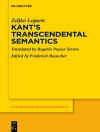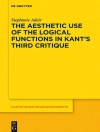In ‘Dickory Cronke: The Dumb Philosopher, or, Great Britain’s Wonder, ‘ Daniel Defoe masterfully explores the intricacies of human experience through the life of its titular character, Dickory Cronke, who defies societal norms with his silence yet resonates with wisdom. Defoe employs a satirical yet earnest narrative style, engaging readers with sharp wit and keen observations, drawing upon the rich tapestry of early 18th-century British society. The interplay of class, the value of intellectual pursuit, and the nature of communication are central themes that reflect Defoe’s adeptness in character-driven storytelling. Daniel Defoe, a prolific writer and keen observer of society, is renowned for his diverse works that span fiction, journalism, and political commentary. His deep insights into the human condition and the complexities of life may have inspired him to create Cronke, a figure symbolizing the potential for intellect beyond verbal discourse. Defoe’s own experiences as a merchant and political activist likely influenced his understanding of the societal undercurrents that permeate this narrative. ‘Dickory Cronke’ is a captivating read for those interested in the confluence of personal reflection and social commentary typical of Defoe’s oeuvre. The book offers a profound contemplation of what it means to be wise and the nuances of understanding in a world often driven by noise and pretense. Scholars and casual readers alike will find resonance in Cronke’s unique perspective.
Giới thiệu về tác giả
Daniel Defoe (c. 1660 – 1731) was a prolific English writer, journalist, and pamphleteer, now most famously known for his novel ‘Robinson Crusoe’. Defoe’s literary oeuvre covers a remarkable range of topics and genres, reflecting his interests in trade, politics, crime, religion, marriage, and psychology. ‘Dickory Cronke: The Dumb Philosopher, or, Great Britain’s Wonder, ‘ published in 1719, spins the tale of a man unable to speak until the age of thirty, before unleashing a torrent of wisdom, illustrating Defoe’s fascination with the functions of the mind and society. This lesser-known work exemplifies Defoe’s narrative flair and his preoccupation with the extraordinary lives of ordinary people, a thematic preoccupation that runs throughout his work. His writing style, characterized by its vivid detail, realism, and the exploration of the human condition, contributed to the early form and popularity of the English novel. Defoe’s influence on literature is undeniable; he set the stage for the realistic novel and his works remain important for their social commentary and literary merit. Beyond ‘Dickory Cronke, ‘ his legacy includes other influential novels such as ‘Moll Flanders’ and ‘A Journal of the Plague Year, ‘ showcasing his adept storytelling and insightful commentary into the diverse strands of early 18th-century British life.












